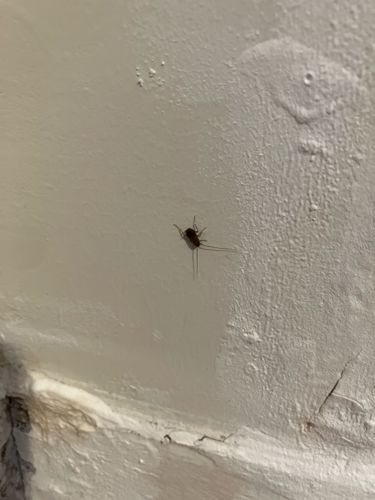Silverfish
Scientific Name: Lepisma saccharina
Order & Family: Zygentoma, Lepismatidae
Size: Typically 13-25 mm (0.5-1 inch) long, excluding their long antennae and tail-like appendages.

Natural Habitat
Damp, dark, and secluded areas, often found indoors in bathrooms, kitchens, attics, and basements. They prefer humidity levels of 75% to 95%.
Diet & Feeding
Omnivorous, feeding on carbohydrates such as sugars, starches, and dextrin. Common food sources include paper (books, wallpaper, glue), photographs, textiles (cotton, linen, silk, synthetic fibers), dried foods (oats, cereals), and even dead insects.
Behavior Patterns
Nocturnal and reclusive, silverfish are fast-moving insects that avoid light. They can live for several years and reproduce slowly, but continuously. They undergo ametabolous metamorphosis, meaning they hatch as nymphs that resemble miniature adults and continue to molt throughout their lives, even as adults.
Risks & Benefits
Potential risks include property damage due to feeding on paper, fabrics, and food items. They do not bite, spread disease, or pose any direct health threats to humans or pets. They have no known significant benefits to humans or ecosystems in an indoor setting; outdoors, they can contribute to decomposition but are not considered a major ecological player.
Identified on: 10/23/2025